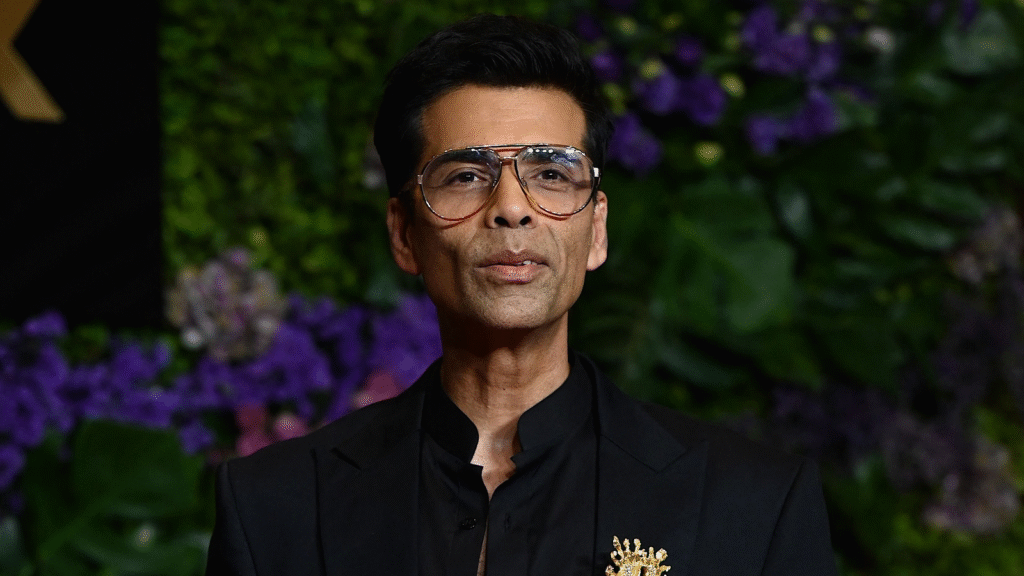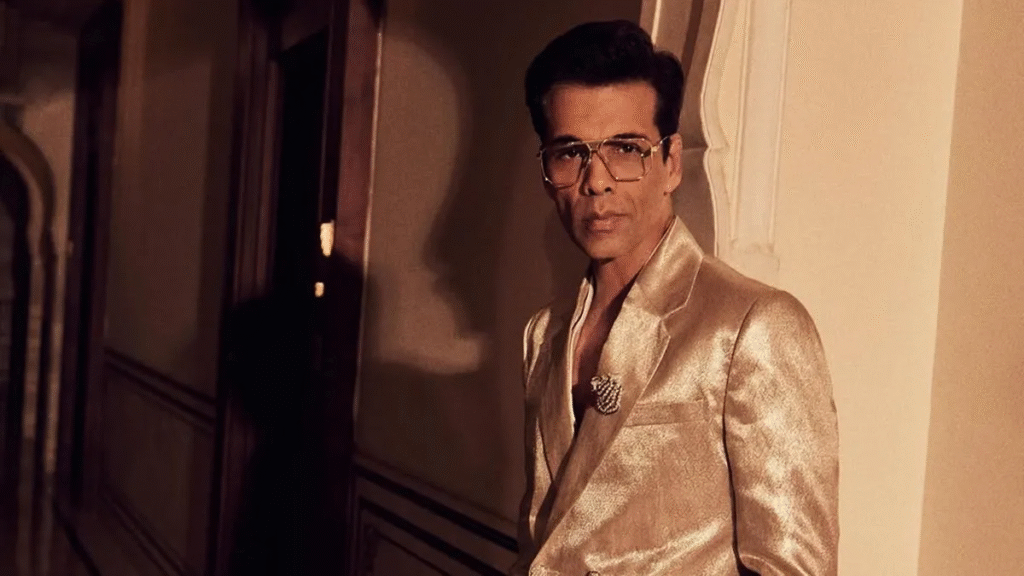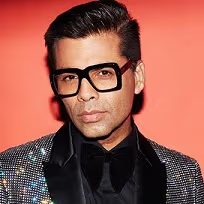
Bollywood is synonymous with grandeur, emotion, and timeless storytelling, and few filmmakers have embodied these qualities as consistently as Karan Johar. Over the years, Johar has directed a series of films that have not only resonated deeply with audiences but have also left an indelible mark on the box office. Known for his keen eye for drama, extravagant sets, and iconic moments, Johar has redefined contemporary Bollywood with a unique blend of emotional depth and visual spectacle.
From his early days in the industry to his status as one of Bollywood’s most celebrated filmmakers, Karan Johar’s directorial ventures are a testament to his understanding of cinema’s pulse. Here, we take a look at some of his most impactful films that have captivated audiences and reigned supreme at the box office.
The Dawn of a Visionary: “Kuch Kuch Hota Hai” (1998)
Johar’s directorial debut, “Kuch Kuch Hota Hai,” was a game-changer for Bollywood. Released in 1998, the film starred Shah Rukh Khan, Kajol, and Rani Mukerji, creating a trio that became legendary. The narrative, weaving themes of friendship, love, and second chances, struck a chord with audiences across generations.
With a budget of approximately ₹10 crore, “Kuch Kuch Hota Hai” went on to gross over ₹100 crore worldwide—a staggering achievement for its time. The film’s music, composed by Jatin-Lalit, became an instant sensation, and its dialogues continue to be quoted decades later. Johar’s ability to blend emotional depth with commercial appeal was evident from the start, setting the stage for his illustrious career.
This film also introduced a fresh aesthetic to Bollywood, combining vibrant visuals with a relatable yet aspirational storyline. The love triangle format, though familiar, was reinvigorated through Johar’s modern lens. The iconic pairing of Shah Rukh Khan and Kajol became synonymous with on-screen chemistry, and the film’s moments of levity were balanced seamlessly with its emotional gravitas.
Expanding Horizons: “Kabhi Khushi Kabhie Gham” (2001)
Following the success of his debut, Karan Johar took his storytelling ambitions to new heights with “Kabhi Khushi Kabhie Gham” (K3G). Featuring an ensemble cast of Amitabh Bachchan, Jaya Bachchan, Shah Rukh Khan, Kajol, Hrithik Roshan, and Kareena Kapoor, the film was a family drama of epic proportions.
K3G’s sprawling narrative explored themes of familial bonds, love, and the complexities of relationships, all set against the backdrop of opulent settings. With a budget of ₹40 crore, it became one of Bollywood’s most expensive films at the time. However, its box office collection, exceeding ₹120 crore globally, justified the investment. The film’s iconic songs, such as “Bole Chudiyan” and “Suraj Hua Maddham,” remain timeless classics.
The grandeur of K3G was not limited to its visual appeal. Johar’s nuanced direction brought out the best in his star-studded cast, crafting memorable moments that resonated with audiences. Whether it was the intense father-son dynamic between Amitabh Bachchan and Shah Rukh Khan or the playful sibling camaraderie between Hrithik Roshan and Kareena Kapoor, the film’s emotional core struck a universal chord.
Moreover, K3G’s cultural impact extended beyond India. The film gained immense popularity among the Indian diaspora, becoming a symbol of nostalgia and a connection to their roots. Its dialogues, such as “It’s all about loving your parents,” became a cultural mantra, cementing K3G’s legacy as a Bollywood classic.
Challenging Norms: “My Name Is Khan” (2010)
“My Name Is Khan” marked a departure from Johar’s usual fare of family-centric dramas. The film, starring Shah Rukh Khan and Kajol, tackled issues of identity, prejudice, and resilience in the face of adversity. It told the story of Rizwan Khan, a man with Asperger’s syndrome, who embarks on a journey across the United States to prove that “My name is Khan, and I am not a terrorist.”
With a budget of approximately ₹85 crore, “My Name Is Khan” was an ambitious project that resonated with audiences worldwide. The film’s poignant narrative and stellar performances earned it critical acclaim and a global box office collection of over ₹223 crore. Johar’s ability to address social issues while maintaining emotional resonance showcased his versatility as a filmmaker.

The film also highlighted Johar’s maturity as a storyteller, as he seamlessly blended a deeply personal story with larger socio-political themes. Rizwan Khan’s journey of love, loss, and redemption served as a powerful narrative device to challenge stereotypes and promote inclusivity. The chemistry between Shah Rukh Khan and Kajol, coupled with Shankar-Ehsaan-Loy’s soul-stirring music, elevated the film to a cinematic triumph.
“My Name Is Khan” also resonated with international audiences, earning accolades at global film festivals and further cementing Johar’s reputation as a filmmaker with a global perspective. The film’s universal themes of acceptance and resilience made it a poignant tale that transcended cultural boundaries.
Redefining Romance: “Ae Dil Hai Mushkil” (2016)
In 2016, Johar returned to the director’s chair with “Ae Dil Hai Mushkil,” a contemporary tale of unrequited love and complex relationships. Starring Ranbir Kapoor, Anushka Sharma, and Aishwarya Rai Bachchan, the film explored themes of friendship, heartbreak, and the blurred lines between love and obsession.
The film’s music, composed by Pritam, became a cultural phenomenon, with tracks like “Channa Mereya” and “Bulleya” dominating charts. Made on a budget of around ₹70 crore, “Ae Dil Hai Mushkil” grossed over ₹237 crore globally, reaffirming Johar’s knack for blending emotional storytelling with commercial appeal.
What set “Ae Dil Hai Mushkil” apart was its exploration of contemporary relationships—messy, imperfect, yet deeply relatable. Johar’s direction brought a raw authenticity to the characters, allowing audiences to empathize with their struggles and aspirations. The film’s visually stunning locations in Paris, Vienna, and London added an extra layer of allure to its narrative.
Additionally, the performances were widely praised, with Ranbir Kapoor delivering one of his career’s finest portrayals as the vulnerable and passionate Ayan. Anushka Sharma’s Alizeh exuded charm and strength, while Aishwarya Rai Bachchan’s Saba added depth and intrigue to the story. Together, they created a tapestry of emotions that lingered long after the credits rolled.
A Modern Epic: “Rocky Aur Rani Ki Prem Kahani” (2023)
Karan Johar’s latest directorial venture, “Rocky Aur Rani Ki Prem Kahani,” brought back the grandeur and charm synonymous with his filmmaking style. Starring Ranveer Singh and Alia Bhatt, the film was a celebration of love, culture, and familial bonds.
With a reported budget of ₹200 crore, the film boasted lavish sets, vibrant costumes, and a stellar supporting cast, including Dharmendra, Shabana Azmi, and Jaya Bachchan. “Rocky Aur Rani Ki Prem Kahani” struck a chord with audiences, earning over ₹600 crore globally and reaffirming Johar’s status as a master storyteller.
The film’s narrative was a perfect blend of humor, drama, and romance, capturing the essence of Johar’s signature style. Its emphasis on cultural diversity and the importance of familial bonds resonated with audiences, making it a heartwarming and entertaining experience. The electrifying chemistry between Ranveer Singh and Alia Bhatt added a fresh dynamic to the story, while the supporting cast delivered powerful performances that enriched the film’s emotional depth.
The Johar Touch: What Sets His Films Apart
Karan Johar’s films are characterized by their ability to evoke a range of emotions while offering visual extravagance. From meticulously designed sets to memorable dialogues and chart-topping music, every element of his movies is crafted with precision. His knack for assembling stellar casts and extracting compelling performances has consistently elevated his films.
Moreover, Johar’s willingness to tackle diverse themes—from the joys and trials of family life to societal issues and modern relationships—has ensured his relevance in an ever-evolving industry. While some may critique his penchant for opulence, there is no denying the universal appeal of his storytelling.
Johar’s collaborations with top-tier talent, both on and off-screen, have also been instrumental in his success. From cinematographers and music composers to costume designers and choreographers, his films reflect a synergy of creative excellence. This attention to detail and commitment to quality have established Johar as a pioneer of modern Bollywood cinema.
Conclusion
Karan Johar’s journey as a filmmaker is a testament to his understanding of cinema’s transformative power. Each of his directorial ventures has left an indelible mark on Bollywood, setting benchmarks for storytelling, production value, and box office success. As audiences continue to line up for his films, Johar remains an enduring force in Indian cinema, shaping its present and future with every masterpiece he creates.
From “Kuch Kuch Hota Hai” to “Rocky Aur Rani Ki Prem Kahani,” Karan Johar’s films are more than just box office hits; they are cultural phenomena that resonate across generations. As Bollywood continues to evolve, his legacy as a storyteller and visionary filmmaker will undoubtedly stand the test of time.
Through his unwavering dedication to his craft and his ability to adapt to changing audience sensibilities, Johar has ensured his place among the pantheon of Bollywood’s greatest filmmakers. Whether crafting tales of timeless love or addressing contemporary societal issues, his films continue to inspire, entertain, and captivate millions around the globe.

